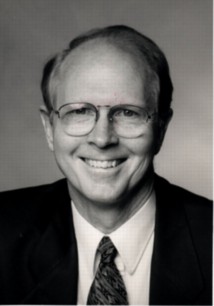Source: Howard Hughes Medical Institute
Posted to Science Daily: August 7, 2006
Movie Spies On Malaria Parasite's Sneaky Behavior Malaria has been outsmarting the human immune system for centuries. Now, using real-time imaging to track malaria infections in live mice, researchers have discovered one of the parasite's sneakiest tricks—using dead liver cells to cloak and transport itself back into the bloodstream after leaving the liver.
Robert Ménard, a Howard Hughes Medical Institute (HHMI) international research scholar, and his postdoctoral fellow, Rogerio Amino, at the Institut Pasteur in Paris, filmed the malaria parasite as it transitioned from infecting liver cells to infecting red blood cells. During this stage of the parasite's life cycle, the classic symptoms of malaria—high fevers and chills—are triggered in people who are infected.
Ménard and Amino collaborated with Volker Heussler at the Bernhard-Nocht Institute for Tropical Medicine in Hamburg, Germany. Their images of the parasite sneaking back into the host's bloodstream—published in advance online in Science Express on August 3, 2006 and scheduled for September 2006 publication in Science—clear up a long-standing puzzle about the malaria parasite's life cycle. The discovery could lead to new ways of treating malaria, a disease that infects 300 million people per year and kills 1 million.
“The parasite has evolved this complex structure. The best image to describe it is the Trojan horse, because it both transports the parasites and camouflages them,” said Ménard. Like the ancient Greek warriors who hid inside a giant hollow horse to gain entry to Troy, the malaria parasites wrap themselves in a structure made of liver cell membrane. This membrane cloak enables them to sneak past immune cell sentinels and return to the bloodstream.
The malaria parasite, Plasmodium falciparum, has a complex life cycle. It passes from a mosquito's saliva to a human's blood, and then travels to the liver, where it infects and kills liver cells. After it leaves the liver, the parasite moves back into the bloodstream to infect and kill red blood cells. The rupturing of blood cells causes the worst symptoms of the infection, which can be deadly to children, pregnant women, and others with weak immune systems.
After leaving this trail of cellular death and destruction in its wake, the parasite is finally taken up again from the blood when another mosquito bites. Then it reproduces and waits for the mosquito to bite again to infect another person.
Researchers have long assumed that the form of the parasite that infects red blood cells, called a merozoite, was released from a ruptured liver cell and moved on its own back to the bloodstream. But studies in the laboratory have shown that the liver's resident macrophage immune cells happily gobble up free-moving merozoites.
“This was a paradox,” said Ménard. "We could not understand how the rate of infection could be so successful.”
Heussler's research team noticed irregular protrusions on the surface of liver cells that had been grown in a culture dish and infected with malaria. So they asked Ménard and Amino for help finding out whether liver cells in an infected animal developed the same protrusions.
Amino captured a series of images inside living mice at one-second intervals to track the parasites' journey. By using parasites labeled with a green fluorescent marker and staining the mouse's blood vessels with a red fluorescent marker, Amino was able to record microscopic images inside the animal's liver. He found that not only did the structures Heussler's group saw on the liver cells in the culture dish, called merosomes, protrude from the animal's liver cells as well, but the scientists watched as they pinched off and carried the parasite safely into the blood vessels.
Amino recalls watching the first data "movie" with Heussler. They could clearly see the merosome forming, pinching off the parasite, and traveling away with it along the blood vessel. “That is the beauty of this technique. You can really see what happens in real time—there are no gaps,” said Amino, now a professor of biochemistry at Federal University of Sao Paulo, Brazil.
The scientists also found that while the parasites are physically hidden inside the merosome, they further protect themselves with a biochemical cloaking device. They prevent the dying liver cell from broadcasting a chemical "death signal" that would normally tell a macrophage to ingest it.
“The parasite did not evolve this complex system for nothing,” Ménard commented. “It is probably very important that the parasite not travel free in the liver.”
If researchers could interfere with the formation of the merosome or restore the death signal, then immune system cells could stop most of the parasites before they reach the bloodstream—the place where they are most destructive.
How the parasites direct the dead liver cell to form the merosome structure and how that bag eventually bursts open in the blood are questions that remain to be answered.
But the power of using imaging to follow parasite movements inside live, infected animal hosts is clear. “It is now possible to follow in real time and quantitative terms the parasite in its host, and that is something we were only dreaming of a few years ago,” said Ménard.



